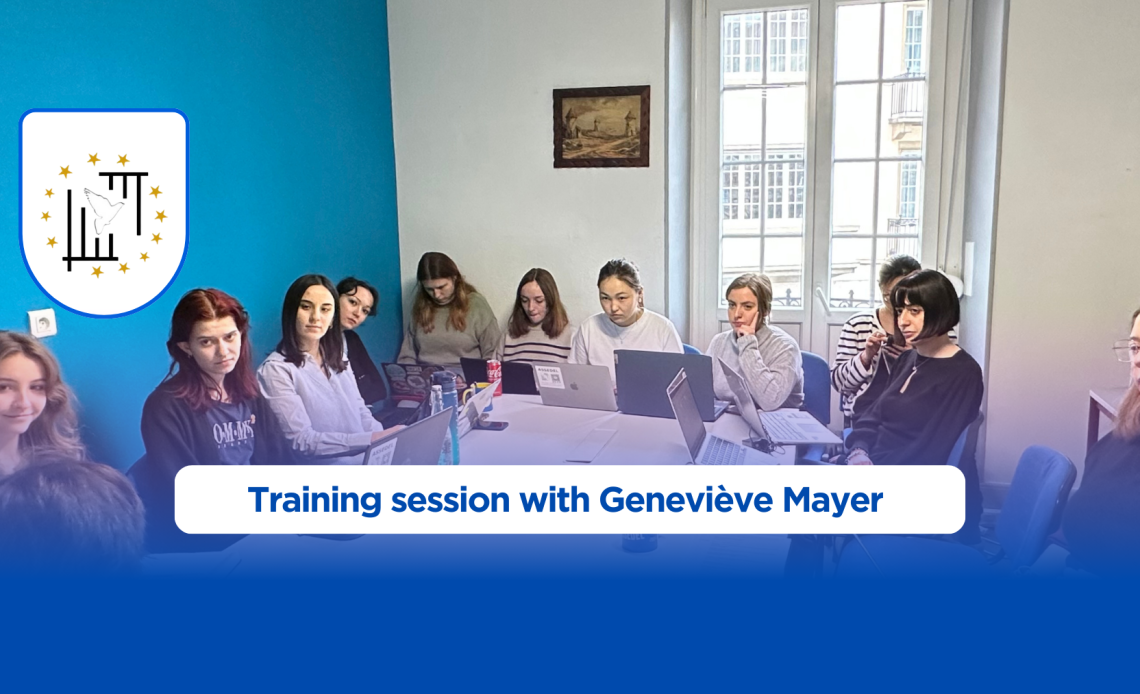On February 11, 2025, ASSEDEL had the honour of hosting an insightful and impactful training session on the execution of judgments of the European Court of Human Rights (ECHR). The session was led by Geneviève Mayer, former Head of the Department for the Execution of Judgments at the ECHR, and provided participants with a comprehensive understanding of the mechanisms ensuring the enforcement of ECHR rulings.
With the European Convention on Human Rights celebrating its 75th anniversary, this discussion was especially relevant in addressing the ongoing challenges in ensuring compliance with human rights obligations across Europe.
Understanding the Execution of ECHR Judgments
Why is effective execution so important?
The European Court of Human Rights plays a crucial role in safeguarding human rights across the 46 member states of the Council of Europe. However, its judgments alone do not guarantee justice—effective execution is essential to ensure that rulings are not only declared but also implemented. The Committee of Ministers supervises this process, ensuring that member states fulfill their obligations under the European Convention on Human Rights.
Key Obligations of Member States:
- Just Satisfaction (Financial Compensation) – Governments must compensate victims as ruled by the Court.
- Individual Measures – States must take corrective actions, such as reopening trials, reinstating individuals unjustly removed from their positions, or granting residence permits.
- General Measures – Structural and policy reforms to prevent future violations, including legal and judicial changes.
Geneviève Mayer emphasized that execution is not merely a technical process but a fundamental obligation of member states. Failure to implement judgments undermines justice for victims and the credibility of the entire human rights system.
Challenges in the Execution of ECHR Judgments
Despite clear legal obligations, the implementation of ECHR rulings faces numerous obstacles, including:
- Political resistance: Some governments delay or resist implementing rulings, especially those requiring significant legal or social changes.
- Legal loopholes: Some states introduce minimal or symbolic reforms that fail to address the core issues identified in the judgment.
- Lack of domestic capacity: Many countries lack the institutional framework or political will to execute judgments effectively.
- Insufficient civil society engagement: The execution process benefits greatly from active involvement by NGOs and human rights organizations, but their input is not always considered.
Notable cases such as Osman Kavala v. Turkey, Paksas v. Lithuania, and Hirst v. United Kingdom highlight the ongoing difficulties in securing full compliance with ECHR judgments.
The Role of Civil Society in Ensuring Execution
Civil society organizations play a vital role in monitoring and advocating for the execution of judgments. Rule 9 of the Committee of Ministers’ procedure allows NGOs and National Human Rights Institutions to submit communications regarding the status of execution. Mayer highlighted the importance of:
- Tracking compliance with judgments.
- Raising awareness at national and international levels.
- Engaging with national authorities to push for meaningful reforms.
- Encouraging strategic litigation to strengthen enforcement mechanisms.
At ASSEDEL, we are committed to leveraging these tools to reinforce the rule of law and ensure full respect for human rights in Europe.
A Call to Action
This training session underscored the persistent challenges in implementing ECHR judgments. As Europe faces increasing political instability and the rise of extremist movements, the role of the European human rights system has never been more crucial.
At ASSEDEL, we remain dedicated to:
- Promoting awareness about the importance of executing ECHR judgments.
- Engaging with legal professionals and human rights defenders to support enforcement efforts.
- Advocating for stronger mechanisms to hold states accountable.
The session with Geneviève Mayer was a significant step toward strengthening collective efforts to uphold democracy, human rights, and the rule of law.
📢 Stay connected with ASSEDEL for future events, reports, and advocacy initiatives. Together, we can ensure that justice is not just declared—it is enforced.

